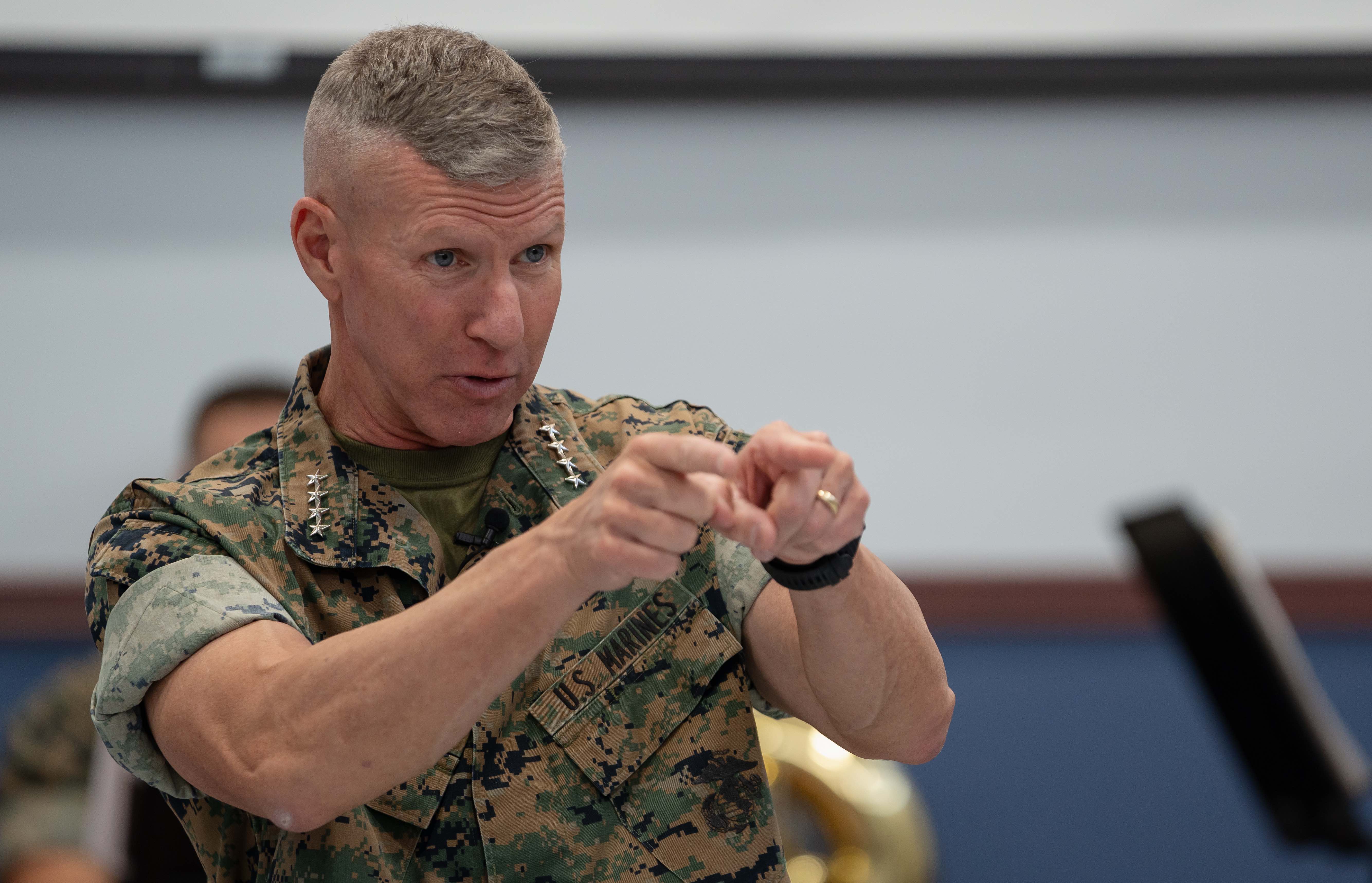
Gen. Eric Smith’s message to the Marine Corps is it’s business as usual until further notice.
Smith, who is both the acting commandant and the assistant commandant of the Marine Corps, released guidance meant to hold the force over until the Senate confirms Smith as the next commandant. In it, he includes priorities and expectations of the force, including repeating the Marine Corps requirement of 31 amphibious warfare ships.
“I cannot predict how long this process may take, but waiting is not an option for Marines, so we will move out as a team — just as we would in combat,” Smith wrote in the guidance released Thursday. “We are always strongest as a team.”
The Marine Corps will continue to follow the trajectory laid out in Force Design 2030, with constant refinements to the plan, Smith wrote.
The guidance lays out Smith’s warfighting priorities, as well as expectations for the force. It is broad and meant to leave room for guidance from Smith as the commandant once he is approved.
Smith’s priorities are balancing crisis response with modernization efforts, naval integration and organic mobility, quality of life, recruit, make and retain Marines and maximize the potential of the reserves.
The Marine Corps will continue to work to streamline modernization as part of Force Design 2030, Smith wrote. He will also continue to push for the requirement of 10 landing helicopter docks/assault ships and 21 landing platform docks as part of the baseline of 31 amphibious ships the Marine Corps demands.
Under recruiting and retaining Marines, Smith wrote that the Marines will continue to push recruiting efforts, while he will work on quality of life issues, like housing and chow halls, to make it so Marines want to stay. Under Talent Management 2030, the personnel aspect of Force Design 2030, the Marine Corps switched from a model of recruiting Marines for one contract and then expecting few re-enlistments to pushing for a maturation of the force through retention.
The force will also focus on the reserves, including making it easier to transition to and from active duty to reserve status, according to the guidance.
As ACMC, Smith expects educated, competent, fair and mature leaders, who also have compassion. Those leaders can lead to a positive command climate, the second expectation.
“A positive command climate is not simply the lack of destructive behaviors, but rather an environment where Marines thrive,” reads the guidance.
Creating a positive command climate comes from the warfighting ethos and discipline associated with Marines, Smith wrote. Leaders should help prepare their Marines mentally, morally and physically.
The Marine Corps also needs to work on eliminating issues like drug use, sexual assault and hazing that cause division.
“Our standards apply equally to our newest Private, to you, and to me,” Smith wrote. “I owe you a command climate where honest mistakes can be made, where Marines are treated like professionals, and where discipline is central to who we are.”





